20:50
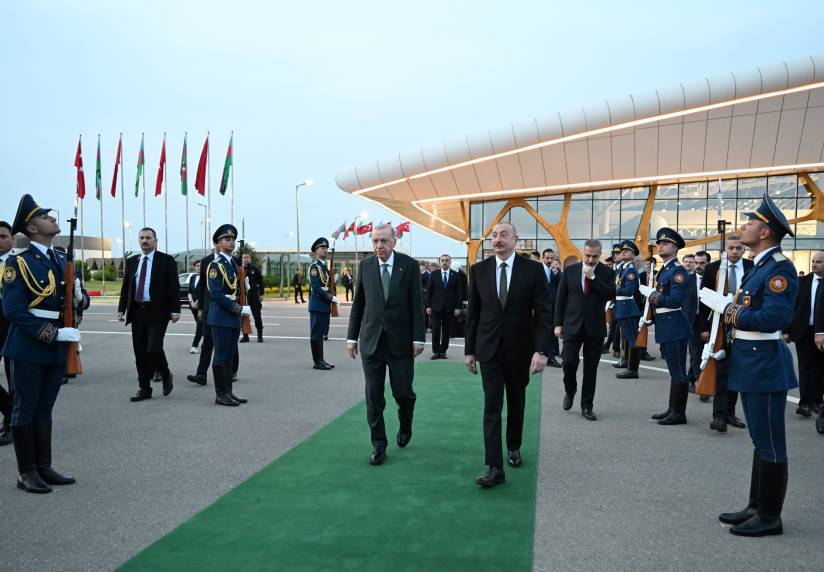
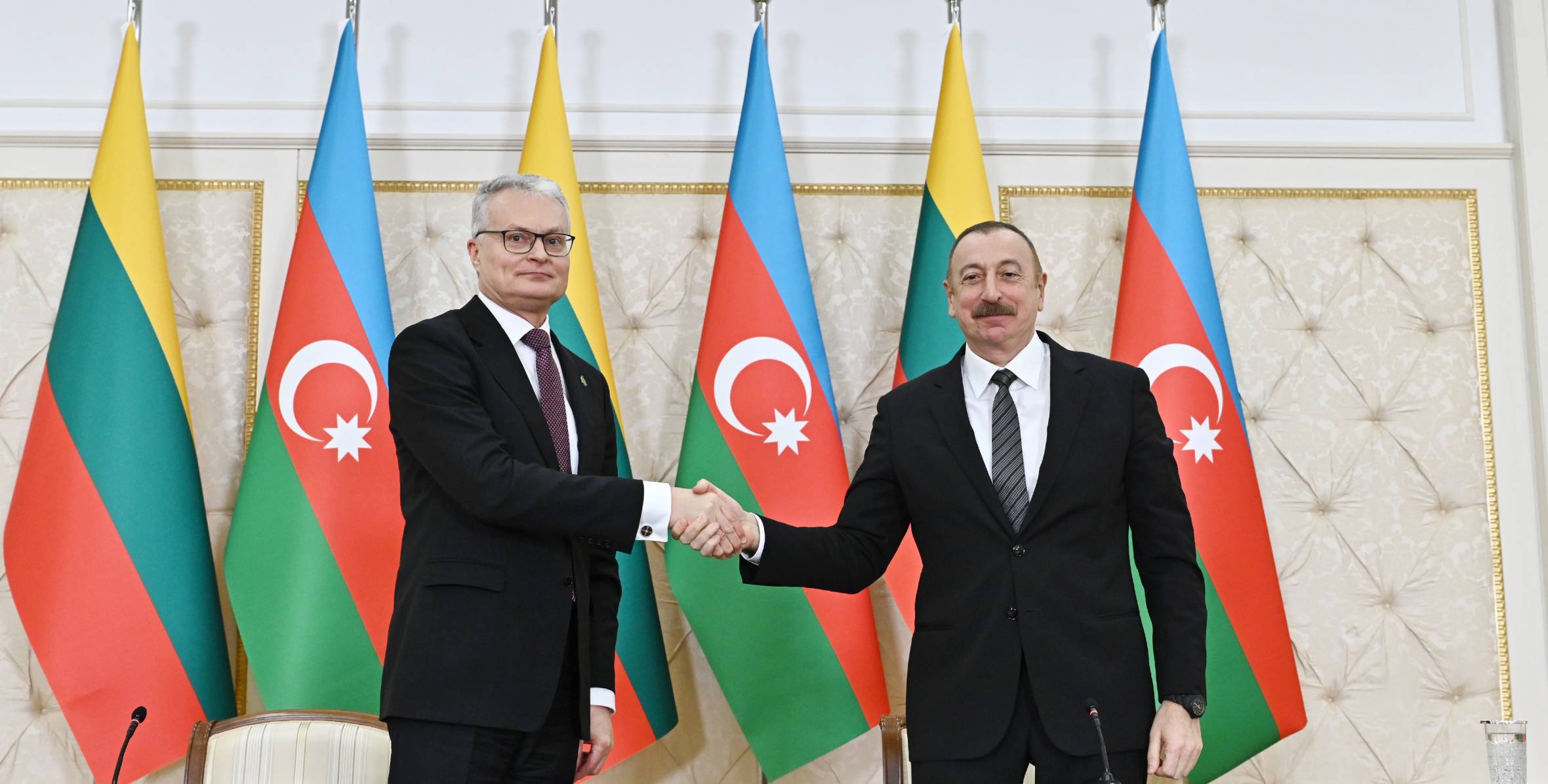
President of the Republic of Azerbaijan Ilham Aliyev and President of the Republic of Lithuania Gitanas Nausėda have made press statements.
Statement by President Ilham Aliyev
- Mr. President,
Ladies and gentlemen.
Mr. President, welcome to Azerbaijan again. I am very pleased to welcome you to our country. Thank you very much for your official visit to Azerbaijan. We consider it as a sign of friendship and partnership. Lithuania and Azerbaijan have been strategic partners for many years. The Declaration on Strategic Partnership signed between us really reflects the essence of our cooperation. Today, Mr. President's visit is further evidence of the strategic nature of our cooperation.
We have discussed a number of issues. Of course, we are pleased to emphasize the strong political ties between our countries, the political dialogue that helps us to resolve various issues on the bilateral agenda. Two years ago, we had the opportunity to talk to Mr. President via video conference, and very constructive and productive discussions took place. Now we have the opportunity to talk about many important issues on the bilateral agenda in a live format.
As you know, we will address representatives of the business communities of our countries later today. I am aware that there is a great mutual interest in working together. Today, we discussed various aspects of cooperation in economic, trade, transport, agriculture, education, energy, sports and other fields, both bilaterally and in an expanded format.
Of course, we have also talked about the post-conflict situation in the South Caucasus. I reiterated Azerbaijan's position that we want to see the South Caucasus as a region of peace, cooperation and interaction. I think that after the second Karabakh war, there is an opportunity to create this format of cooperation. We have also exchanged views about that with our Georgian colleagues which also very positively consider this option but unfortunately Armenia is not willing so far to give a start, initial start to a trilateral format of interaction in the South Caucasus. I think that these opportunities should not be missed, because now is the time for the South Caucasus to demonstrate its commitment to peace, security and stability. As for the post-conflict situation, we have some optimism, which is based on the fact that Armenia has officially accepted the five fundamental principles put forward by Azerbaijan in connection with the peace agreement. As a matter of fact, as soon as the second Karabakh war ended, Azerbaijan started to openly come out in favor of the signing of a peace agreement and the establishment of a joint commission on the delimitation of borders. This was not welcomed by Armenia. Then we clarified our position, these five well-known principles that are fundamental principles of international law, are in accordance with the UN Charter, the Helsinki Final Act and good international practices. We do hope that Armenia remains committed to its initial position, which includes the adoption of these principles, and this serves as a basis for the signing of a peace agreement.
At the same time, we called on Armenia to embark on the delimitation of borders. Because our state border with Armenia, including several districts of Azerbaijan which make up 20 percent of the territory, had been under occupation for about 30 years. Therefore, the need for delimitation of borders is obvious. At a meeting initiated by the President of the European Council, Mr. Charles Michel, in Brussels on 6 April, it was agreed that both sides would establish a working group by the end of April and start their work.
Azerbaijan set up its working group on time and was ready to send out a delegation. This was agreed with the Armenian side. By the way, it was the Armenian Foreign Ministry that proposed to hold the first meeting on the border issue. Azerbaijan accepted the offer and we were ready to send out a delegation. However, on the last day, on 29 April, Armenia canceled the agreed meeting. This is very disappointing. Even more disappointing was Armenia's refusal to hold a different meeting on the border issue on 7-11 May, based on Armenia's initial proposal. So we are waiting for new dates from Armenia to start work. Because such an irresponsible position, of course, is worrying.
Azerbaijan has always remained committed to its obligations. If we promised, in the presence of the President of the European Council, that we were ready to meet by the end of April, we were committed to our word. However, we must see the same level of responsibility from the side of Armenia. In other words, even though we have certain optimism, such maneuvers and fairly strange steps of the Armenian government actually undermine certain confidence.
As for the second Karabakh war, I would like to note that Azerbaijan has fully exercised the right given to us by the UN Charter, the right to self-defense. We had remained committed to negotiations for about 30 years, but they yielded zero results. For a long time, I personally always called for the international community to impose sanctions on Armenia. If sanctions, serious sanctions had been imposed, there would have probably been no war. Unfortunately, Armenia took advantage of a very special attitude towards itself, and no sanctions were imposed on it even though it had flagrantly violated international law and occupied the territory of another country.
Azerbaijan had to restore its territorial integrity by military and political means. We had to implement UN Security Council resolutions calling for an immediate withdrawal of Armenian troops. Finally, Azerbaijan's territorial integrity was restored on the battlefield and at the negotiating table.
We are facing the issue of reconstruction and revitalization of the liberated territories. Because everything there is destroyed and razed to the ground. International experts call Aghdam, one of the liberated cities, the Hiroshima of the Caucasus. However, as was the case in Hiroshima, the destruction here was not caused by an atomic bomb, but by barbarians and vandals during the occupation. I want to say again now that we are committed to peace and want to achieve it as soon as possible.
Mr. President and I have also extensively discussed the EU-Azerbaijan cooperation, which is developing very successfully. We have also discussed the prospects for concluding negotiations on a new agreement, energy, transport security and trade relations. The European Union is our main trading partner. Given the fact that we have started exporting natural gas to Europe and the fact that oil and gas prices are rising, our turnover with the European Union has been certainly growing this year. We are grateful to Lithuania for supporting the nearing of positions between Azerbaijan and the European Union. Azerbaijan has already signed statements on strategic partnership with nine EU members. This is one third of the member states. This shows that the European Union is as interested in cooperation as we are. Once again, Mr. President, thank you for being with us. I look forward to continuing our dialogue and achieving good results. I am sure that this will be the case. Welcome again!
Statement by President Gitanas Nauseda
- Hello, Your Excellency President Aliyev. It is a great pleasure to be visiting Azerbaijan with my delegation. Thank you for welcoming us to your beautiful country. I have already noticed how beautiful and unique Baku is, and I do hope to get to know it better during this visit.
Azerbaijan is a very important partner for Lithuania in the Caucasus region. It is in our interest, Mr. President, to further develop bilateral relations in the spirit of the Joint Declaration on Strategic Partnership signed in 2007. I fully believe that there is great potential for expanding our economic cooperation. That is why I have brought many business representatives to Azerbaijan. We are interested in exploring market opportunities and increasing bilateral trade. I would also like to invite Azerbaijani business people to visit Lithuania later this year.
We are at a critical juncture for Europe and its security architecture. As we speak now, Ukraine is defending its sovereignty and territorial integrity. It is also defending an international order based on rules. It is now important to support Ukraine by all available practical means.
Lithuania is in favor of a more active cooperation between the European Union and Azerbaijan. Azerbaijan is a very important country in the context of the European Union's Eastern Partnership platform, and also a strategic energy partner. We continue to support the progress of the new agreement between the European Union and Azerbaijan. The war in Ukraine has been a warning signal for Europe to diversify its energy resources. The European Union wants to diversify its energy resources and end its dependence on Russia for fuel. The European Union is interested in strengthening cooperation with alternative energy exporters, including Azerbaijan, in the field of natural gas. Azerbaijan is a reliable partner of the European Union in the energy sector.
We are seeing great potential for cooperation between our countries through European and other international development tools. We are interested in sharing our successes and experiences in the field of reforms. One of the best examples is the European Union's Twinning program. Azerbaijan and Lithuania are reliable partners within this program, and I know that we have already completed many Twinning projects, and some are ongoing.
I am aware that Azerbaijan has set itself the goal of increasing the volume of renewable energy sources. Lithuania has a strong position in the renewable energy sector, especially in the field of solar energy. Lithuanian companies can offer high quality and durable solar modules. Lithuania can supply Azerbaijan with many different food products, the main export market of which is the European Union. It is a market that requires a high level of food quality.
Cooperation between our countries in the field of transport and logistics also has great potential. Lithuania has a well-developed road, rail, inter-model and seaport infrastructure and services. We can offer a competitive logistical access to the European market. We are interested in exploring the potential of the Europe-Caucasus-Asia transport corridor.
A delegation from the education sector also visited Azerbaijan. Rectors of Lithuanian universities want to strengthen cooperation in the field of higher education. The main goal is to establish dual degree study programs with Azerbaijani universities. In this context, I would like to mention that today my wife Diana is opening the auditorium at the Azerbaijan State University of Economics. The auditorium is named after Lithuanian writer Vincas Kreve-Mickievicius. Vincas Kreve was a outstanding and exceptional personality. A hundred years ago, in 1919, he served as the Lithuanian consul in the independent Republic of Azerbaijan. He saved the lives of thousands from the red terror of the Bolsheviks by issuing Lithuanian documents. Mr. President, once again thank you for the warm welcome in Baku and I kindly invite you to visit Vilnius.
President Ilham Aliyev: Thank you very much.
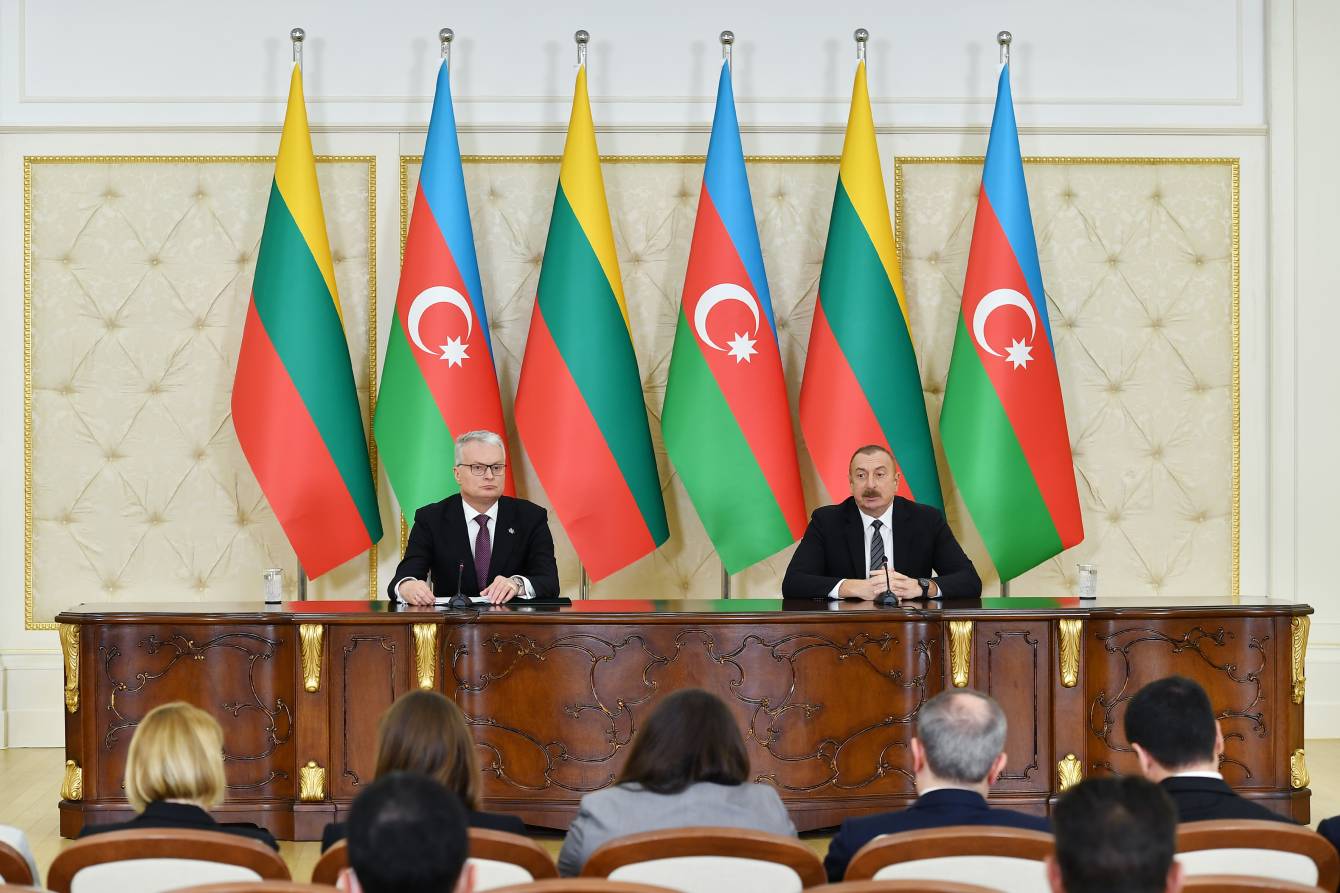
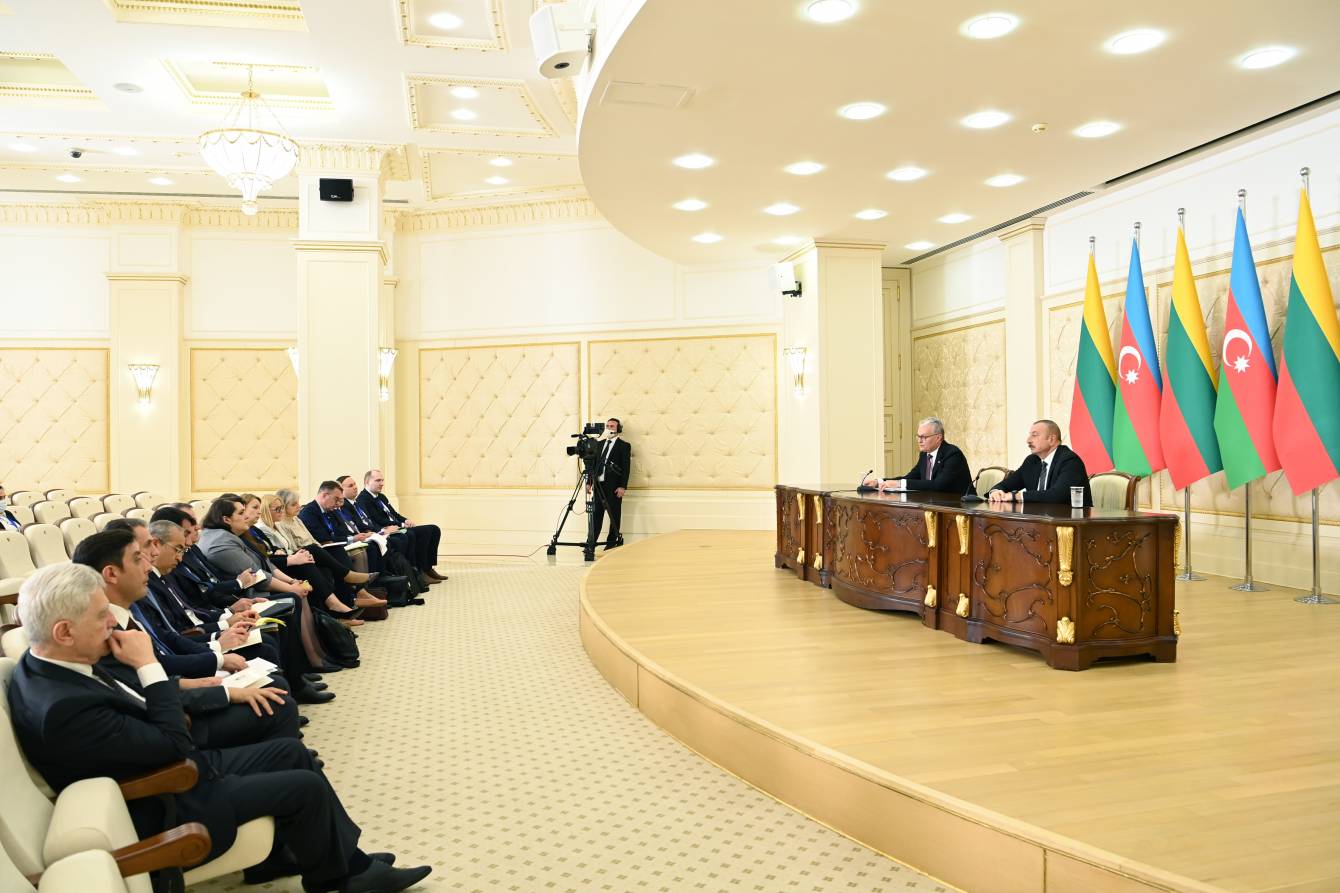
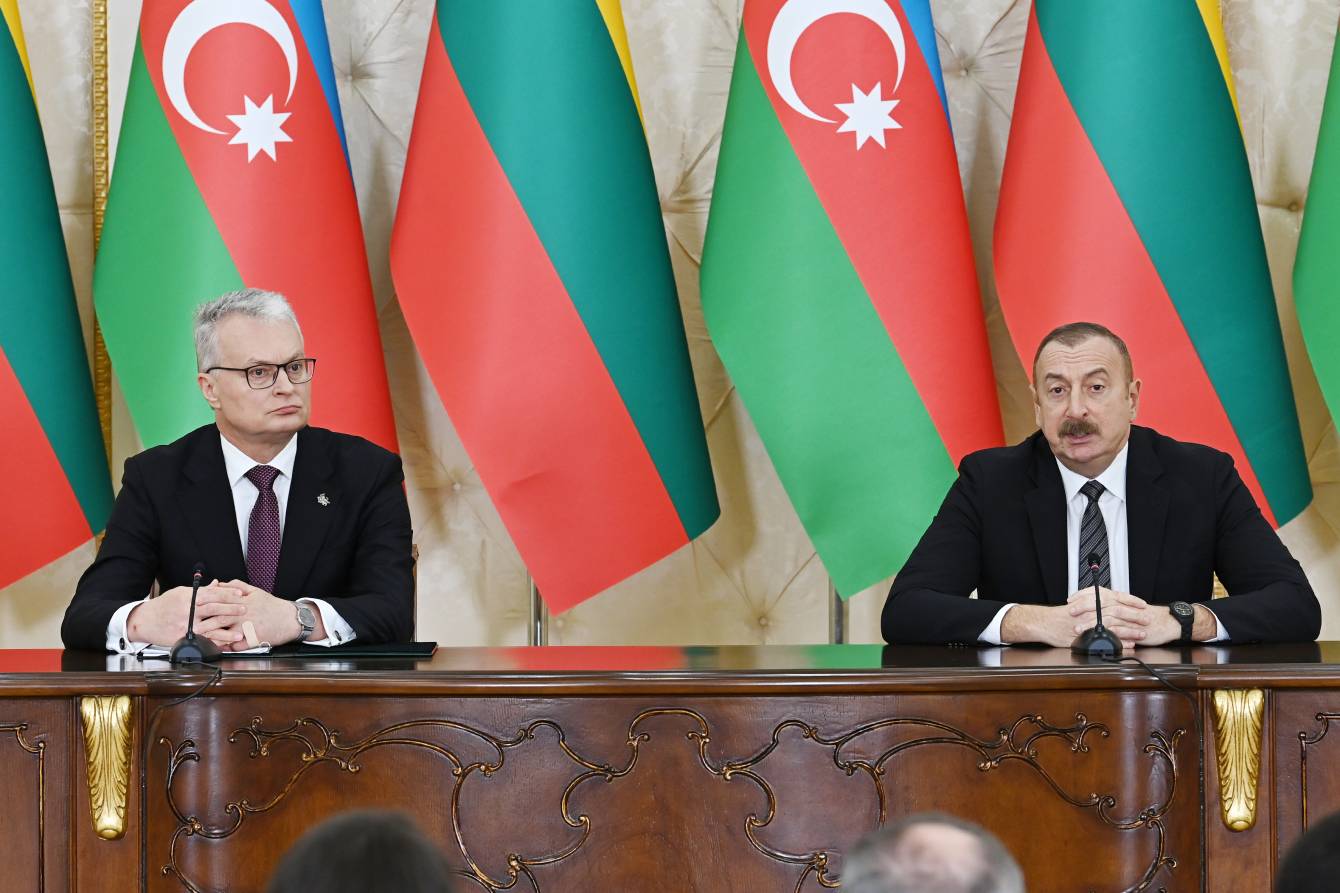
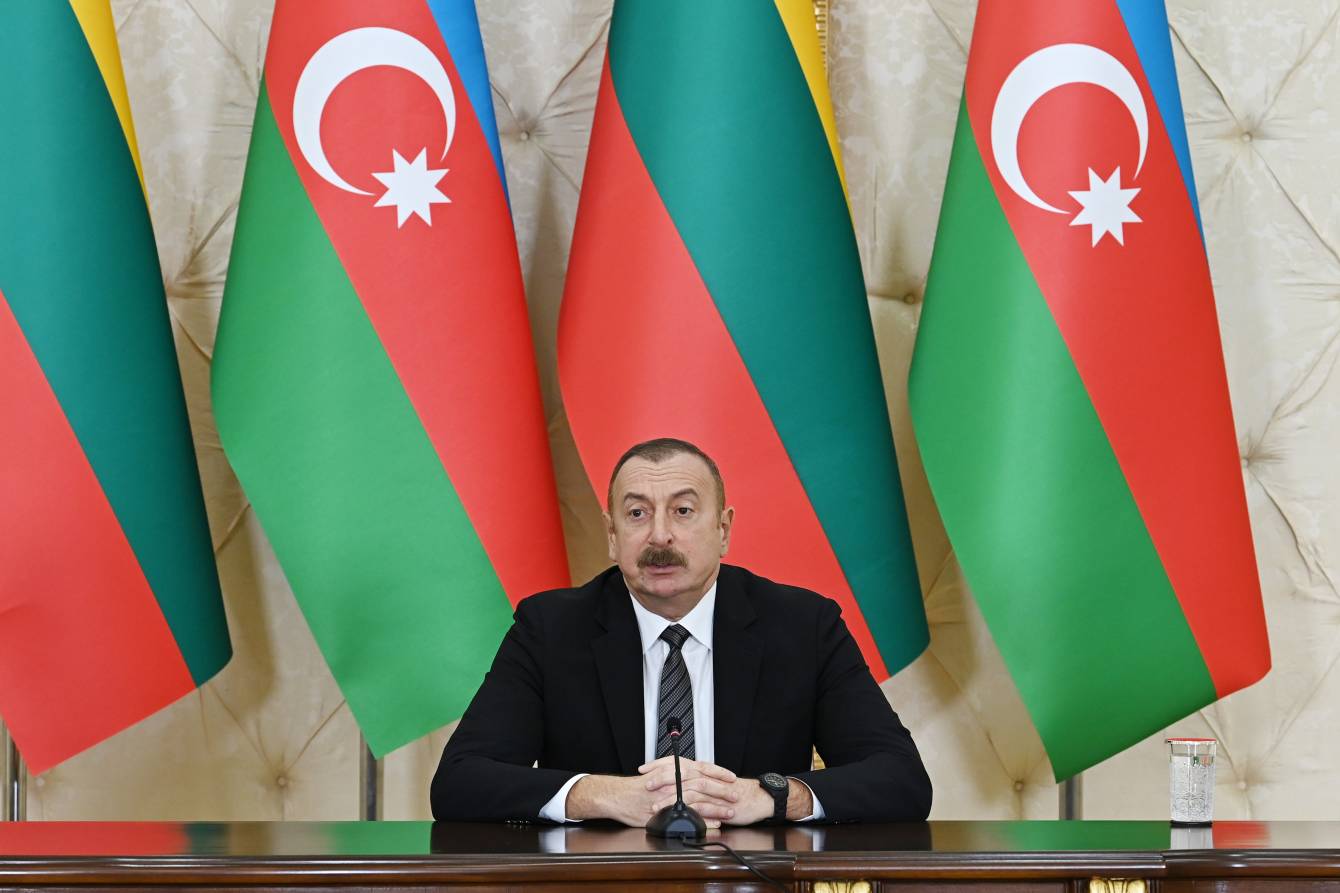
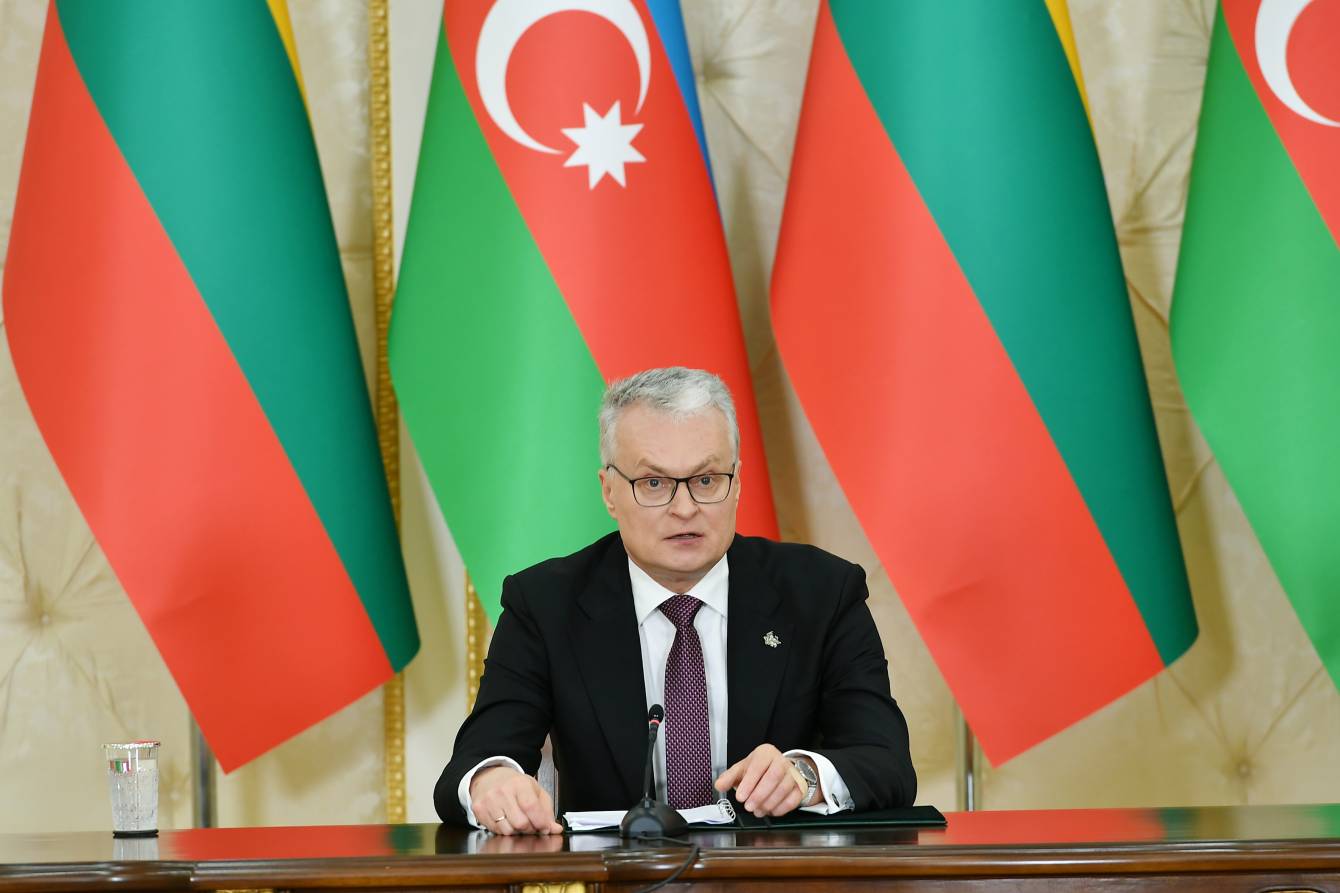
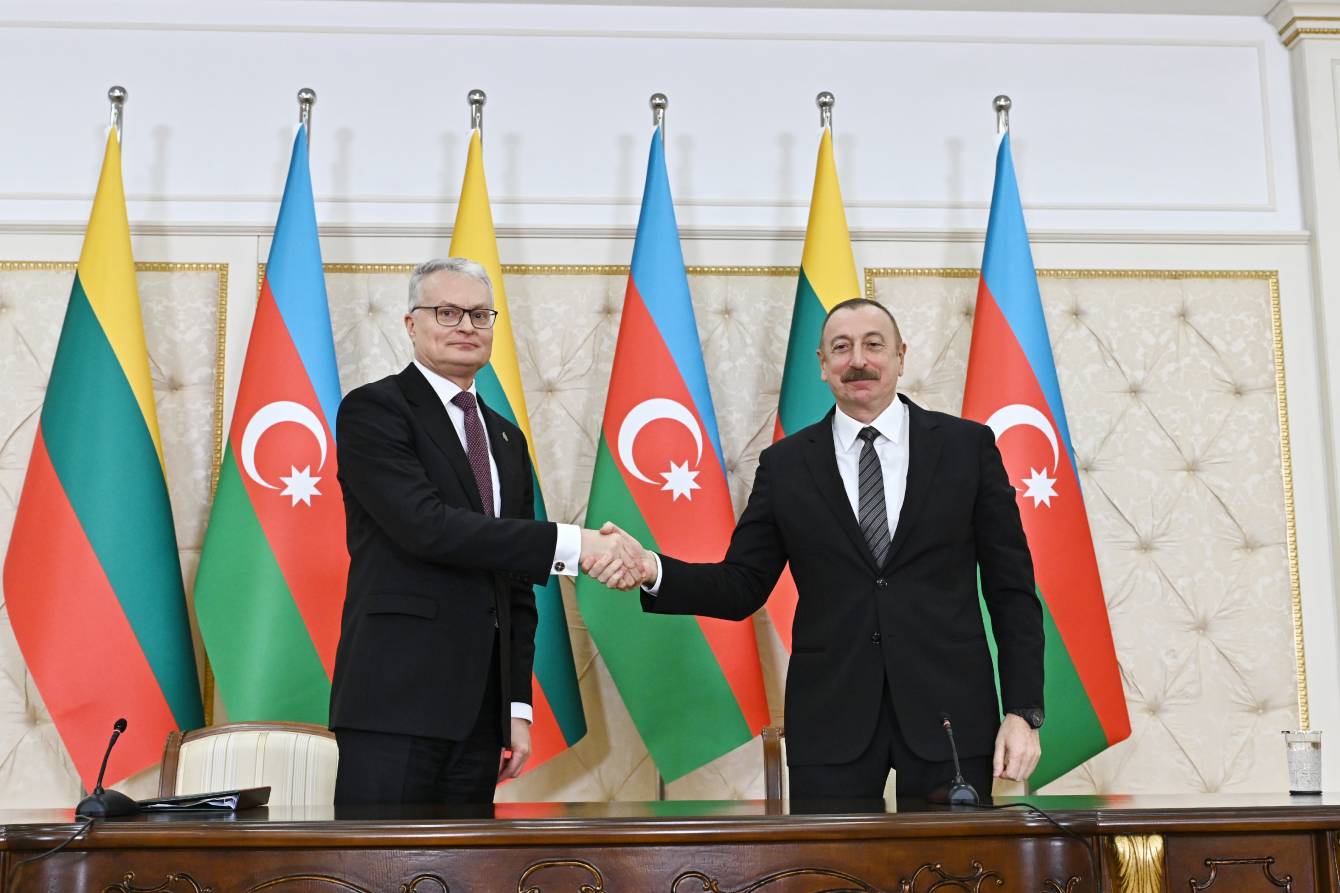

His Excellency Mr. Ilham Aliyev, President of the Republic of Azerbaijan
Excellency,
On the auspicious occasion of the celebration of the National Day of the Republic of Azerbaijan on 28 May, the Government and people of the Republic of South Africa join me in...
28 May 2025, 18:37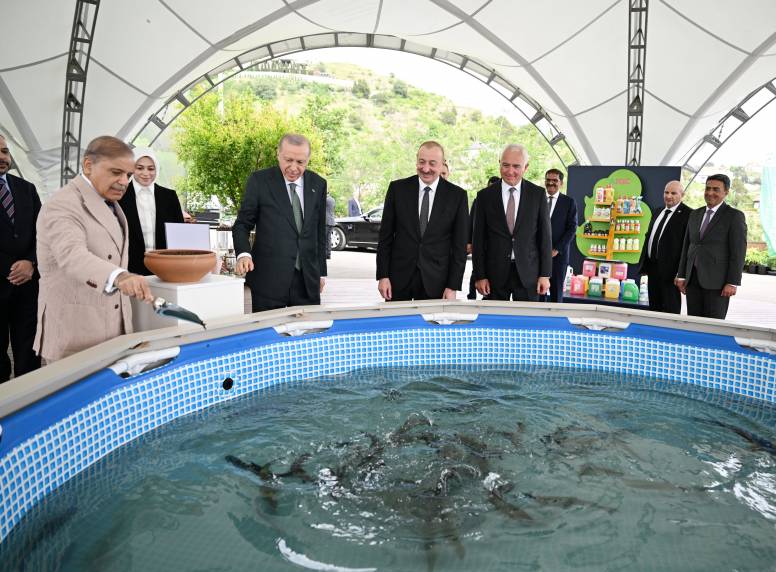
His Excellency Mr. Ilham Aliyev, President of the Republic of Azerbaijan
Dear President Aliyev,
On behalf of the American people, I want to congratulate you and the people of Azerbaijan on your Independence Day.
We value our relationship with the Republic of...
28 May 2025, 17:40His Excellency Mr. Ilham Aliyev, President of the Republic of Azerbaijan
Dear Mr. President,
On the occasion of Azerbaijan's Independence Day, I extend my warmest congratulations to you and the people of Azerbaijan. I wish your country continued progress,...
28 May 2025, 15:25His Excellency Mr. Ilham Aliyev, President of the Republic of Azerbaijan
Your Excellency,
On behalf of the International Secretariat of the Organization for Democracy and Economic Development - GUAM and me personally, I would like to extend our most sincere...
28 May 2025, 13:58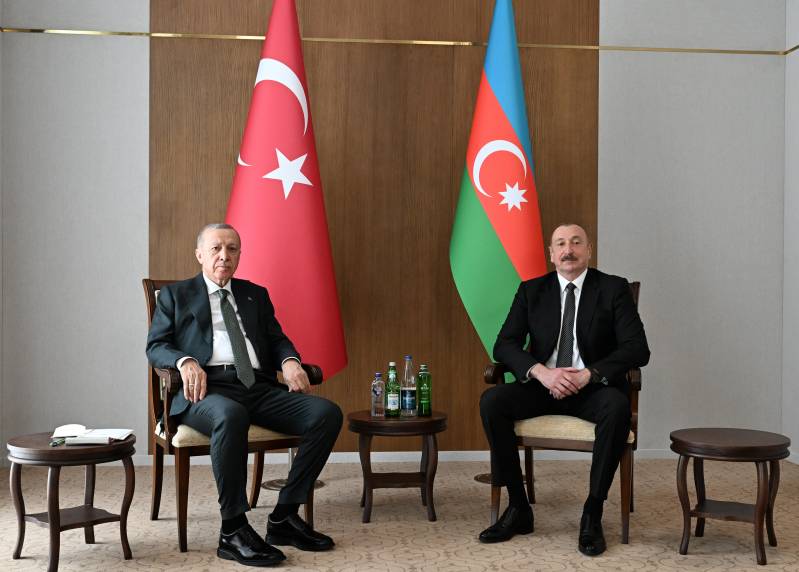
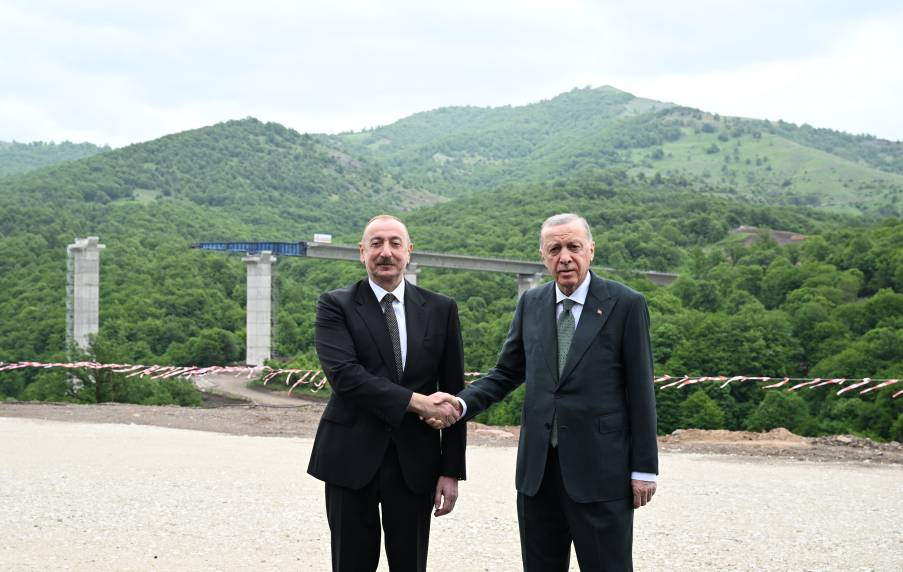
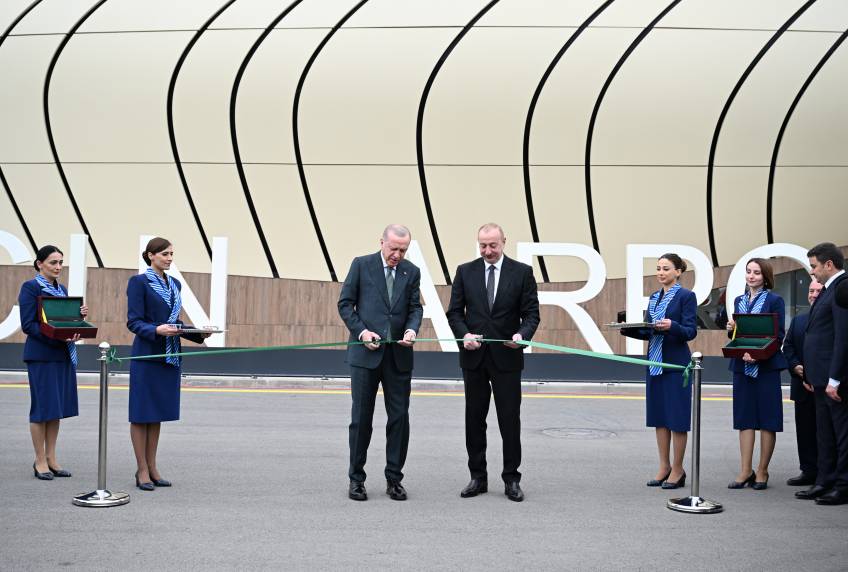
His Excellency Mr. Ilham Aliyev, President of the Republic of Azerbaijan
Dear Mr. President,
On the occasion of the National Day of Azerbaijan, it is with sincere joy that I send Your Excellency, on behalf of the Portuguese people and myself, greetings and wishes of...
27 May 2025, 19:55